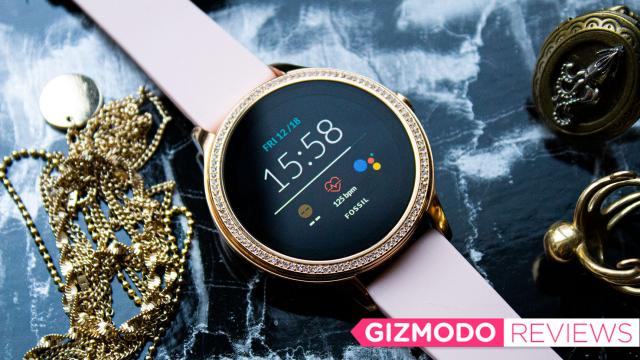The Fossil Gen 5E was doomed from the start.
To begin, 2020 was a truly impressive year for smartwatches. Fitbit came out swinging with the Fitbit Sense and refined the Versa 3. Apple also continued to knock it out of the park with watchOS 7, the Series 6, and the more affordable Apple Watch SE. And let’s not forget about Samsung’s Galaxy Watch 3, a gorgeous, full-featured Android smartwatch that can go toe-to-toe with the Apple Watch.
Unlike Fitbit, Apple, and Samsung, Google doesn’t make Wear OS watches — yet. Wear OS is the purview of third-party smartwatch makers, and of them, Fossil is by far the most prolific. If you’re getting a Wear OS watch, there’s a very good chance it’s from Fossil or one of the many designer brands under its umbrella. That means Fossil’s annual flagship watch is, generally speaking, a good litmus test of where exactly Wear OS is at. So it wasn’t a terribly encouraging sign that this year’s flagship is the Fossil Gen 5E, a smaller, slightly more affordable version of last year’s Gen 5.
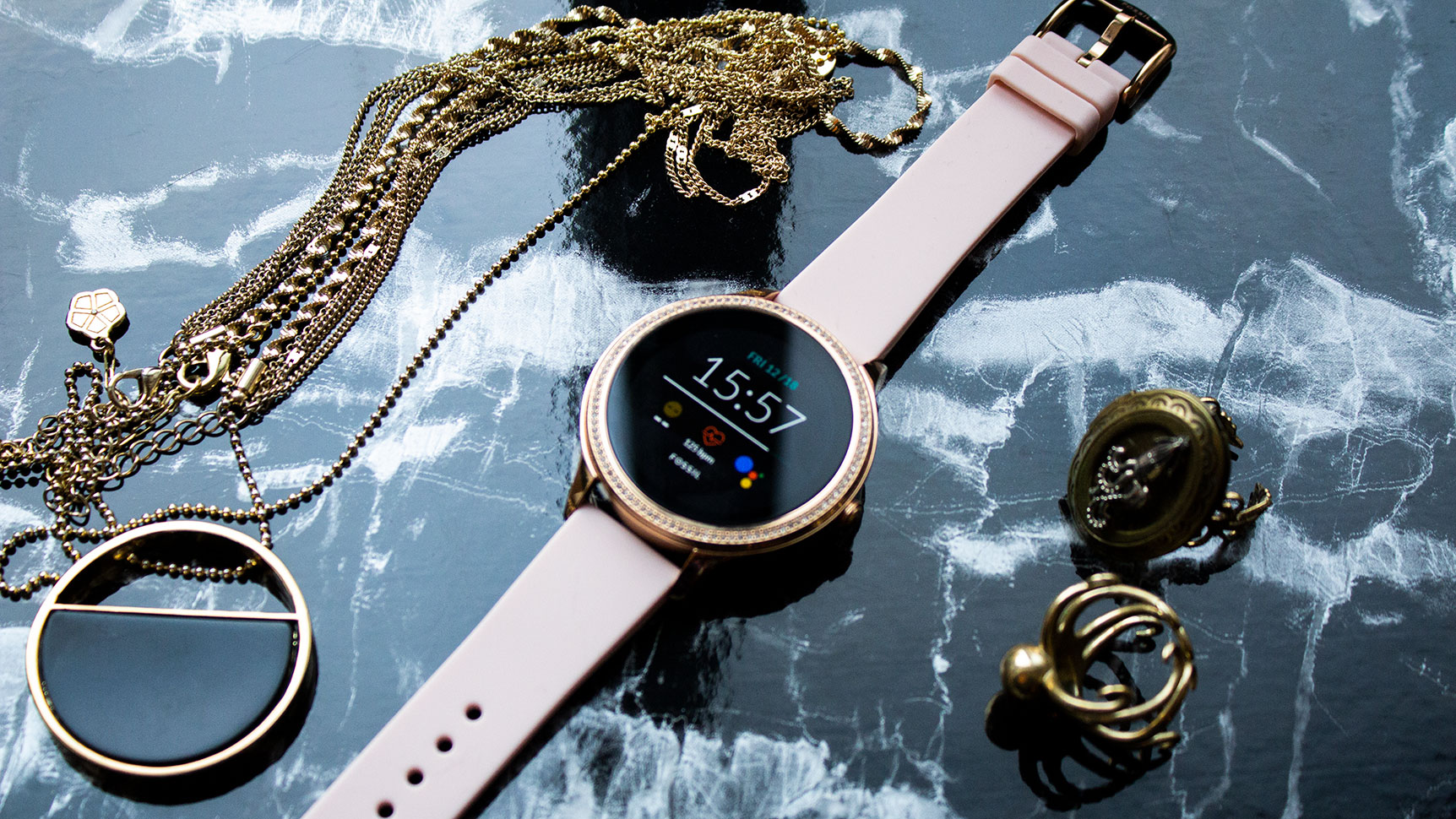
Fossil Gen 5E
What is it?
A smaller, cheaper Fossil Gen 5
Price
$US250 ($328)
Like
It *is* smaller and pretty. Automatic switching between battery modes was helpful. The Wear OS updates were pleasant.
No Like
Connected GPS was lacking. Always-on display massively drains battery. Runs on an older processor so it will be outdated very quickly.
Don’t get me wrong. As a petite-wristed person, I’m all for smaller smartwatches, and the 42mm Gen 5E is easy on the eyes. My review unit was the 42mm in blush, with a gold case and pave bezel — not my personal everyday style, but aesthetically it’s a mini Gen 5, and, you know what, that’s fine. My main beef lies with the internal hardware components. Qualcomm launched its new Snapdragon Wear 4100 platform this year, but not fast enough for the fall smartwatch production cycle. That means the Gen 5E is sporting the same 3100 chip and 1GB of RAM as the Gen 5. Except, in making the watch smaller, the Gen 5E only has 4GB of storage to the Gen 5’s 8GB, tethered GPS as opposed to on-board, and it lacks an altimeter. Otherwise, the Gen 5E is pretty much the same as its predecessor, with Google Pay, a built-in speaker and microphone, and 3ATM of water resistance. All this would be totally fine if the cost savings were significant. They’re not.
[referenced id=”1516456″ url=”https://gizmodo.com.au/2020/10/fossils-new-smartwatches-could-leave-wear-os-fans-feeling-the-lag/” thumb=”https://gizmodo.com.au/wp-content/uploads/2020/10/06/apv1ydutilzc0ahn3xfz-300×169.jpg” title=”Fossil’s New Smartwatches Could Leave Wear OS Fans Feeling the Lag” excerpt=”For better or worse, Fossil makes the bulk of Wear OS smartwatches on the market thanks to its huge stable of designer brands. (Seriously, it’s not a trade show without 5,000 Fossil smartwatches that all kind of do the same thing.) But this spring, instead of launching a Gen 6…”]
At retail price, the Fossil Gen 5E is $US250 ($328), which is only $US45 ($59) less than the $US295 ($387) Fossil Gen 5. For context, the Fitbit Versa 3 is $US100 ($131) cheaper than the Fitbit Sense. The Apple Watch SE is $US120 ($157) cheaper than the Series 6. The Samsung Galaxy Watch Active2 is also $US120 ($157) cheaper than the Galaxy Watch 3.
I spent a lot of time wondering why that $US45 ($59) difference bothered me so much. After all, for its feature set, the Fossil Gen 5E is reasonably priced. It boils down to the fact that it’s just not different enough from the Gen 5. With other brands, there’s a clear difference between expensive flagships and their more affordable cousins. It’s easier to recommend what type of person should opt for which price tier based on features, use case, or design. In this case, the best I can say is “Hey, smaller-wristed people! Would you like to save $US45 ($59) because you happen to have the right skeletal frame?”
It might sound like I hate this watch, but I really don’t. The Fossil Gen 5E is perfectly decent. Actually, a bunch of new updates to Wear OS meant it was vaguely pleasant to use the Gen 5E. But that’s not unique to the Gen 5E! Every Wear OS smartwatch gets the updates! So again, I can’t say this is a reason to get the Gen 5E over any other Wear OS watch.
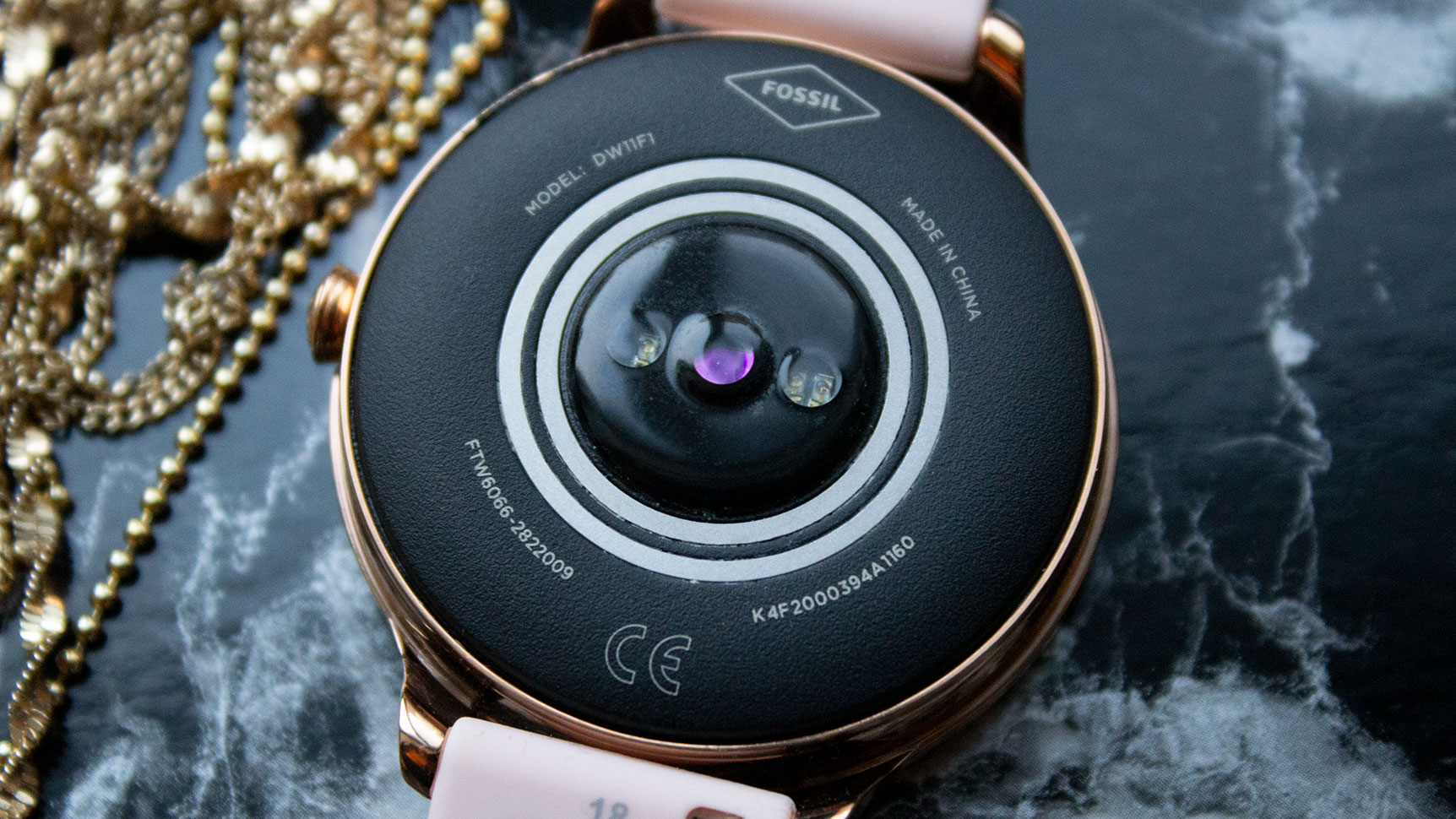
I appreciated the addition of native sleep-tracking, which has been a glaring omission from Wear OS until now. It’s also such a relief that Google revamped the Google Fit app so that it’s actually somewhat useful instead of a barebones waste of space. Last year, Fossil also added some much-needed features, like Cardiogram — a heart rate-focused app — to its stable of pre-loaded apps, and the free version is decently comprehensive if you want to keep track of your cardio fitness. The new Wellness app and widget are also nice and convenient to access, though a little too simplified for my tastes. For instance, via the widget, you can only choose between an unspecified outdoor exercise or an indoor activity — and in both instances, it seems to default to running metrics. That left me rather confused when trying to track a strength-training session.
The most useful update was the ability to automatically shift between different battery modes to extend the Gen 5E’s paltry battery life. Though Fossil says you get multi-day battery life, I felt like that was an overly generous description. The most I ever got was 1.5 days with regular usage, and if I had the always-on display, that fell to an abysmal 18 hours or so. However, I did appreciate that when I wore the watch to sleep, in the middle of the night it’d shift to Extended Mode, which stretches out your battery life while still delivering heart rate data and notifications. Then, when I got the chance to charge it in the morning, it’d automatically revert back to normal. Rapid charging — a feature that Fossil watches have had for a few years — also takes some of the sting out of the less-than-ideal battery life.
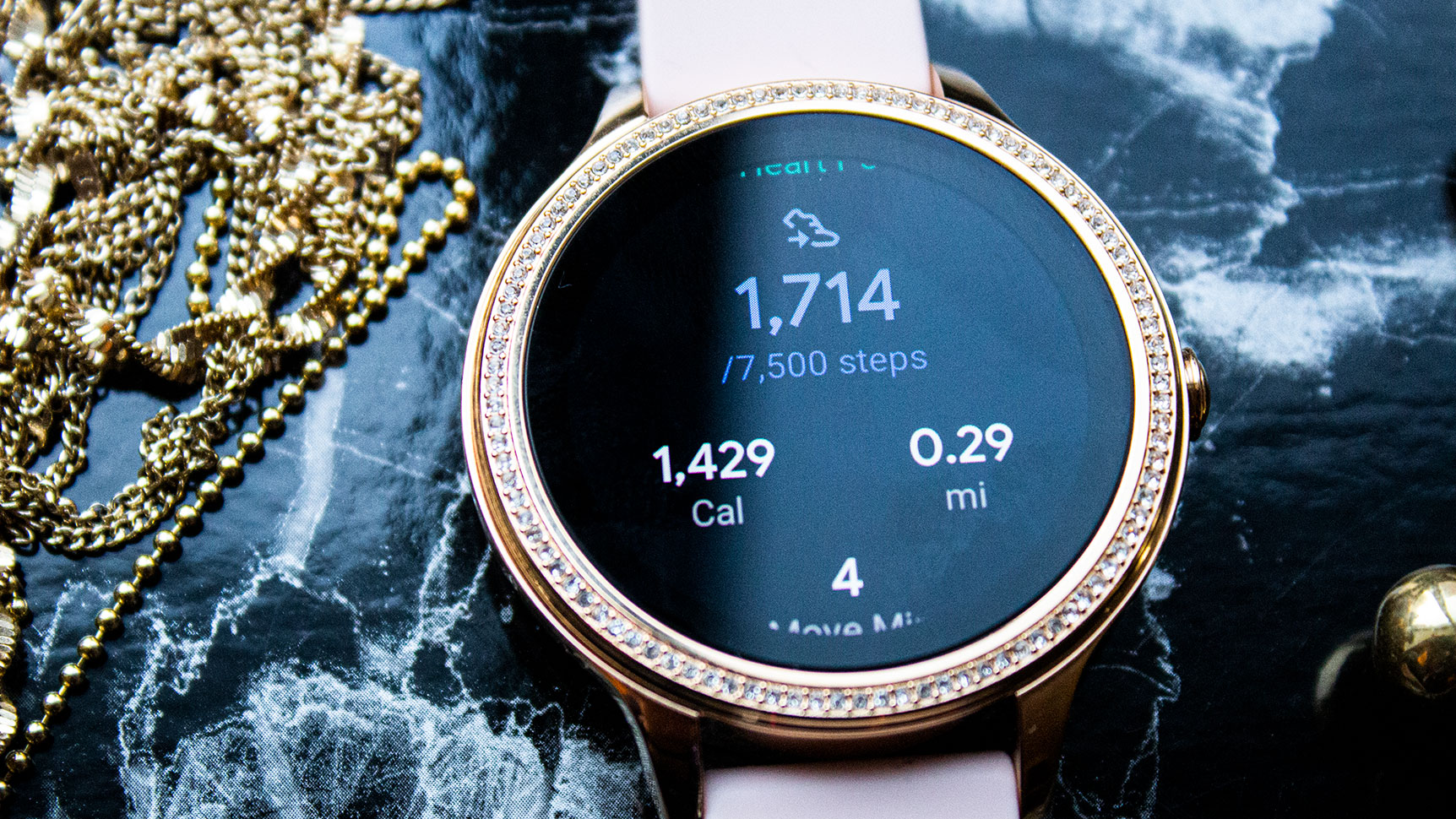
This battery issue is an example of how the Gen 5E feels like a wasted opportunity. The Snapdragon Wear 4100 platform promises better battery life, so I’d imagine these multiple battery modes would be much more impressive on a 4100-powered smartwatch. But again, the Gen 5E is running on the now outdated 3100 chip and there’s only so much extra charge you can eke out. (The Mobvoi TicWatch Pro 3 is currently the only Wear OS watch with the 4100 chip on the market right now.) To be clear, this isn’t really Fossil’s fault — it’s more Qualcomm’s for consistently dragging its heels in updating the Snapdragon Wear SoC. (One could make a convincing argument that many of Wear OS’s failures can be traced back to Qualcomm.)
As for fitness-tracking, I had a mixed experience with the Gen 5E. I’ve never seen super accurate GPS results with a Fossil watch, but I keenly felt the lack of built-in GPS. During three test runs, I hit the record button only to find out mid-run or after my run that the watch hadn’t established a good signal with my phone…and therefore it recorded nothing, or my logged data had to be thrown out. In two other instances, it seemingly connected properly but only gave me credit for 0.02 and 0 km. This is despite the fact it generated an accurate map of my route, correctly recorded my workout duration, and captured heart rate data. The one time it worked as intended I got an OK result. It recorded a 6 km run on my phone as 6 km, while the Apple Watch SE logged 6 km. This means out of six test runs, I only had one run where I felt I got adequate GPS-tracking.
While my GPS results were awful, my heart rate readings and averages were on par with the Polar H10 and Apple Watch SE. So if your main goal is to just make sure you’re getting enough aerobic exercise per week, the Gen 5E is a capable device. The same holds true for sleep tracking. You don’t really get granular insights, but accuracy-wise, it corresponded with my results from the Oura Ring. You do get some basic sleep metrics, however, such as time spent in light or restful sleep, periods when you were awake, and average sleep duration.
Aside from GPS accuracy, I only had one other issue with the Gen 5E. For the vast majority of the two weeks I tested the watch, I had zero issues swiping between screens. Sometimes programs were a smidge slow to load, but nowhere near as bad as Wear OS watches of yore. However, after charging the watch one day, the Gen 5E freaked out on me. As you can see in the brief clip above, I had some phantom swipes and none of my touches seemed to register. This bizarre incident lasted for about five minutes but cleared up once I restarted the device. It hasn’t happened since, so I’m not inclined to read too much into it. That said, it did make me wonder if the 3100 chip might be struggling with some of the newer Wear OS updates that were perhaps intended for the next-gen 4100-powered watches.
Despite the mixed fitness-tracking results and the weird glitching, the Fossil Gen 5E really isn’t a terrible smartwatch. It’s just not a smartwatch that was set up for success. It’s coming in a year in which we saw so many impressive new offerings, on an outdated chip, without really adding anything enticing for people who might want to upgrade from a slightly older Wear OS watch. At least when the Fossil Sport — one of the first 3100-powered watches to launch — came out in 2018, it was a marked difference from its 2100-powered predecessors. The Gen 5E feels like a stopgap smartwatch, a placeholder until Fossil can produce a new flagship powered by the 4100 chip. I’ll say it until I die of asphyxiation: Android users deserve a smartwatch that delivers all the bells and whistles to every Android user. (Samsung’s Galaxy Watch 3 comes very close, but it saves its best features for people with Samsung phones.) Unfortunately, the Gen 5E isn’t going to cut it.
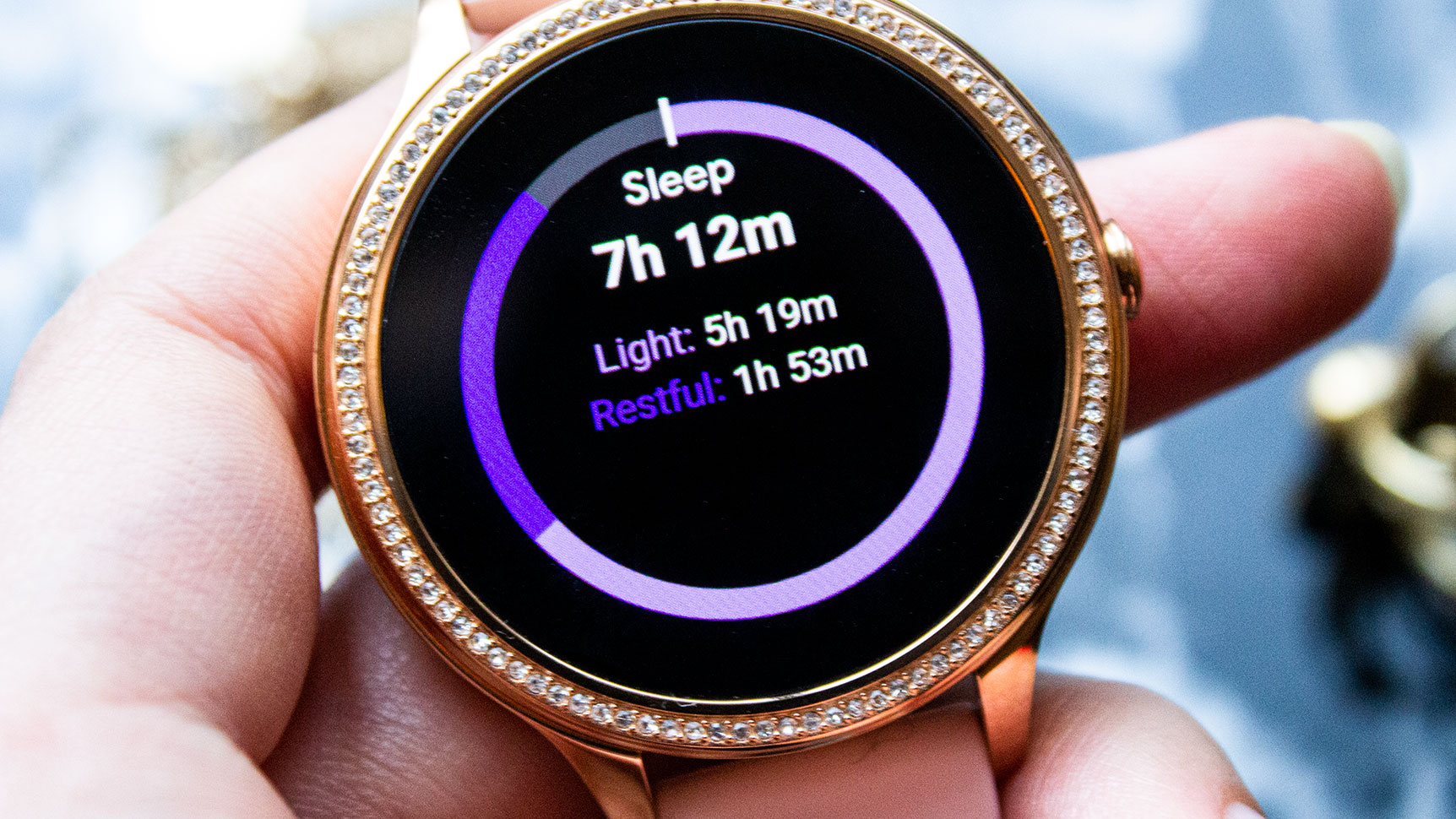
Given that, I don’t feel great about recommending the Gen 5E at retail price. It’s probably a much better idea to wait for the inevitable onslaught of 4100-powered Fossil smartwatches. However, if you were to find it on sale, perhaps for something under $US200 ($262), this is actually a decent gateway gadget for someone who’s unsure if they even like smartwatches — provided they’re not a fitness buff. Outside of this extremely specific scenario, however, my advice is to be patient and wait.
README
- A slightly smaller and cheaper version of Fossil’s Gen 5 flagship smartwatch.
- Your savings are only $US45 ($59). That’s meh considering you lose built-in GPS, get half the storage, and axe the altimeter.
- The Wear OS updates are pleasant!
- Runs on an outdated processor and isn’t a great fitness tracker.
- Feels like a stopgap until Fossil can release a Snapdragon Wear 4100-powered flagship.
Editor’s Note: This review is on Fossil’s Gen 5E Smartwatch which, at present, is not available on Fossil’s Australian website.
